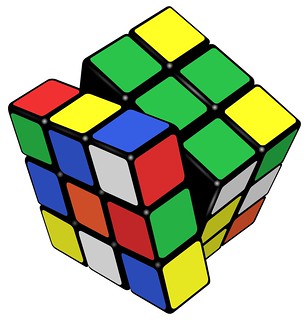It’s all very well getting an AI to write your code for you but neither writing code or reading code are the same as understanding code. So what is going on in novices brains when they learn to actually understand the code they are reading and writing? Join us on Monday 6th March at 2pm GMT to discuss a paper by Quintin Cutts and Maria Kallia from the University of Glasgow on this very topic [1], from the abstract:
An approach to code comprehension in an introductory programming class is presented, drawing on the Text Surface, Functional and Machine aspects of Schulte’s Block Model, and emphasising programming as a modelling activity involving problem and machine domains. To visually connect the domains and a program, a key diagram conceptualising the three aspects lies at the approach’s heart, alongside instructional exposition and exercises, which are all presented. Students find the approach challenging initially, but most recognise its value later, and identify, unexpectedly, the value of the approach for problem decomposition, planning and coding.
We’ll be joined by one of the co-authors (Quintin Cutts), who’ll give us a lightning talk summary of the paper to kick-off our journal club discussion. [1] Quintin has added: “You can’t write if you can’t read. In just four pages the paper outlines a classroom approach to developing in novices good code comprehension right from the start of an introductory course. There’s also some feedback on what students thought, a year later – spoiler – they seemed to get a lot from it. Anyone teaching introductory programming might find such a short paper thought provoking, even if they don’t pick up the technique in their teaching. Worth a quick read, and coming along to listen/add to the discussion…”
All welcome, as usual we’ll be meeting on zoom, details at sigcse.cs.manchester.ac.uk/join-us.
References
- Quintin Cutts and Maria Kallia (2023) Introducing Modelling and Code Comprehension from the First Days of an Introductory Programming Class in CEP ’23: Proceedings of 7th Conference on Computing Education Practice Pages 21–24 DOI:10.1145/3573260.3573266





